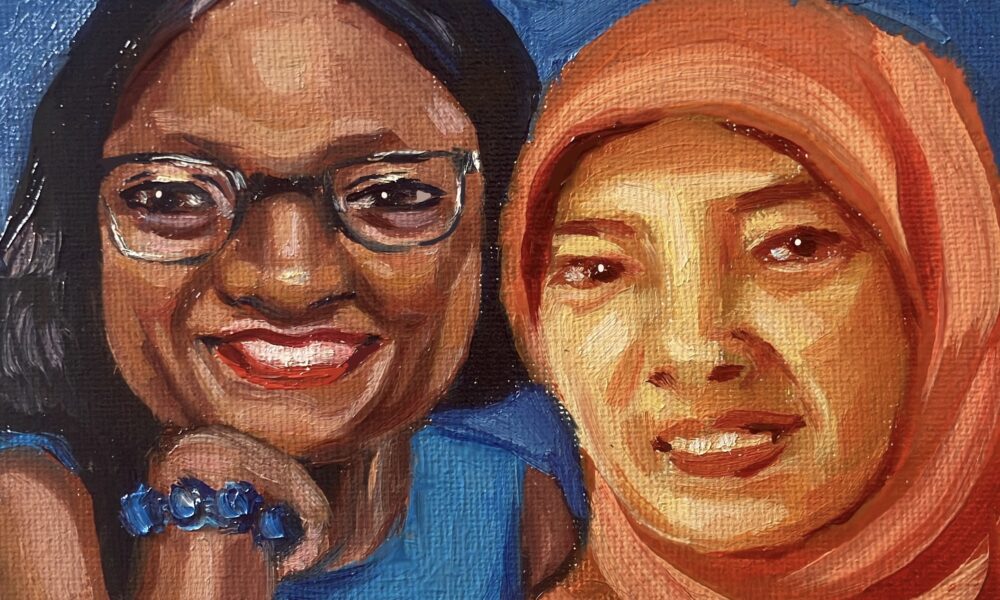While trying to find engaging stories about modern women in STEM, accomplished researcher and global healthcare leader Dawn Heimer was frustrated by the lack of available options. In response, she documented the stories of 27 women scientists from around the world in her June 2024 book, Determined to be Extraordinary.
“I felt that modern women of science needed a platform to be heard. They needed a platform to tell people how amazing they are and all the wonderful contributions they were making,” Heimer explained in an interview with The Tribune.
Collecting and editing stories was a change of pace for Heimer, who had worked for 19 years in healthcare leadership, managing and directing global teams of health professionals.
“I had written scientific abstracts and manuscripts, but nothing like a book,” Heimer said. “Almost every step of the way took a lot of courage on my part because I just didn’t know where to go for advice.”
Despite the challenges, Heimer was undeterred and reached out to major women’s scientific organizations, calling for women to share their stories.
One of these researchers was Eva Suarthana, medical epidemiologist and adjunct professor in McGill’s Obstetrics and Gynecology Department.
Suarthana’s path from training to be a medical doctor in Indonesia to becoming a researcher was a highly rewarding, albeit unusual turn.
“In Indonesia, the mindset is that when you’re a doctor, you have to become a specialist,” Suarthana said in an interview with The Tribune. “Although I miss clinical experience, I feel that what I can contribute at a bigger level is only achievable through public health.”
Suarthana is no stranger to large shifts: Her academic pursuits took her from Indonesia to the Netherlands.
As she worked to finish her master’s degree in Rotterdam, Suarthana noticed that her Islamic faith put her in a minority group—a change from her childhood in Indonesia, the country with the largest number of Muslim population in the world.
“I was not wearing the headscarf then, but my friends knew I was a Muslim. I soon learned that the way western media portrayed Islam […] was far from the Islam I knew and practiced. After a few months, I decided to wear the headscarf,” Suarthana wrote.
Suarthana’s decision to wear a headscarf empowered her.
“I felt a huge relief because I could show people the true colours of Islam, and they treated me with respect and fairness,” Suarthana wrote.
Suarthana also stressed the importance of asking for what you want.
“In the last month of my [master’s degree] I asked if there was an opportunity for me to do a PhD [in the Netherlands]. And surprisingly, they said yes. If I didn’t ask that question, if I thought that I wasn’t qualified enough, or not worthy enough, then I would have had a different pathway,” Suarthana said. “You have to appreciate your worth and don’t be afraid to ask for opportunities.”
Determined to be Extraordinary details the rest of Suarthana’s story.
“I am very happy and fortunate that Dawn gave me the opportunity to share my story in this book,” Suarthana said.
From Lola Adeyemi who launched a health care centre in Nigeria to speed up treatments in poorer areas, to Michele Finn, the National Oceanic and Atmospheric Administration’s first female hurricane hunter, every chapter in Determined to be Extraordinary is united by one thing—the tenacity of each scientist.
“It’s fascinating how much strength and determination all of these women had and needed in order to be successful,” Heimer said.
Heimer also noticed that most of the scientists she interviewed tended to downplay their achievements.
“[Often] women would say, ‘Oh, I was lucky to have this opportunity. I was lucky to have this mentor in my life.’ And I would always wag my finger and say, ‘No, you’re not lucky, you have these opportunities, because you are capable, you are skilled, and you deserve these accolades.’”
Determined to be Extraordinary is now available on amazon bookstores or through Heimer’s website, https://dawnheimer.com/.






